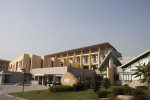UK News
-
 'They wanted $4m': what M&S can learn from other cyber attacks
As Marks & Spencer grapples with the fallout of a significant cyber attack, others who’ve been through similar ordeals are offering insight into what it’s like to be targeted by hackers—and...Read More...
'They wanted $4m': what M&S can learn from other cyber attacks
As Marks & Spencer grapples with the fallout of a significant cyber attack, others who’ve been through similar ordeals are offering insight into what it’s like to be targeted by hackers—and...Read More... -
 UK mortgage borrowing spikes before tax break ends
UK homebuyers significantly increased mortgage borrowing in March, rushing to take advantage of a tax break before it expired. According to Bank of England (BoE) data released Thursday,Read More...
UK mortgage borrowing spikes before tax break ends
UK homebuyers significantly increased mortgage borrowing in March, rushing to take advantage of a tax break before it expired. According to Bank of England (BoE) data released Thursday,Read More... -
 SFO launches international bribery probe into data centre contract
The Serious Fraud Office (SFO) has launched a multi-million pound international bribery investigation, conducting raids on five properties and arresting three individuals.Read More...
SFO launches international bribery probe into data centre contract
The Serious Fraud Office (SFO) has launched a multi-million pound international bribery investigation, conducting raids on five properties and arresting three individuals.Read More... -
 Nigel Farage and Reform UK face crucial test in local elections
Reform UK leader Nigel Farage is facing a major test in the UK’s local elections this Wednesday, as his party attempts to capitalize on growing support and position itself as a seriousRead More...
Nigel Farage and Reform UK face crucial test in local elections
Reform UK leader Nigel Farage is facing a major test in the UK’s local elections this Wednesday, as his party attempts to capitalize on growing support and position itself as a seriousRead More... -
 Chancellor Rachel Reeves under investigation over gifted theatre tickets
Chancellor Rachel Reeves is under investigation by Parliament's standards commissioner concerning her entries in the Commons register of interests.Read More...
Chancellor Rachel Reeves under investigation over gifted theatre tickets
Chancellor Rachel Reeves is under investigation by Parliament's standards commissioner concerning her entries in the Commons register of interests.Read More...

Culture
-
 Harrogate’s cherry blossoms rival Japan’s sakura season
While Japan’s iconic cherry blossom season draws millions each year, a town in North Yorkshire is proving you don’t need to fly 6,000 miles to experience the magic.Read More...
Harrogate’s cherry blossoms rival Japan’s sakura season
While Japan’s iconic cherry blossom season draws millions each year, a town in North Yorkshire is proving you don’t need to fly 6,000 miles to experience the magic.Read More... -
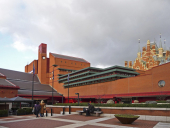 British Library set for £1.1 billion expansion
The British Library, the largest in the UK, is set for a major transformation with a £1.1 billion expansion project now approved.Read More...
British Library set for £1.1 billion expansion
The British Library, the largest in the UK, is set for a major transformation with a £1.1 billion expansion project now approved.Read More... -
 Export bars placed on two 18th century Agostino Brunias paintings
Two paintings by the 18th-century Italian artist Agostino Brunias, both depicting scenes from the Caribbean island of St Vincent, have been placed under temporary export bars to give UKRead More...
Export bars placed on two 18th century Agostino Brunias paintings
Two paintings by the 18th-century Italian artist Agostino Brunias, both depicting scenes from the Caribbean island of St Vincent, have been placed under temporary export bars to give UKRead More... -
 Pope recognizes Antoni Gaudí's "heroic virtues," puts him on path to sainthood
The Vatican has taken a significant step toward making renowned Spanish architect Antoni Gaudí a saint, officially recognizing his "heroic virtues." Often referred to as "God's architect,"Read More...
Pope recognizes Antoni Gaudí's "heroic virtues," puts him on path to sainthood
The Vatican has taken a significant step toward making renowned Spanish architect Antoni Gaudí a saint, officially recognizing his "heroic virtues." Often referred to as "God's architect,"Read More... -
 Britain’s oldest Indian restaurant faces closure amid Central London lease dispute
Veeraswamy, the UK's oldest Indian restaurant, is facing the threat of closure just before reaching its centenary, due to a lease disagreement with the Crown Estate.Read More...
Britain’s oldest Indian restaurant faces closure amid Central London lease dispute
Veeraswamy, the UK's oldest Indian restaurant, is facing the threat of closure just before reaching its centenary, due to a lease disagreement with the Crown Estate.Read More... -
 Communities invited to nominate beloved UK traditions for National Heritage List
This summer, communities across the UK will be able to nominate their favourite traditions—from iconic celebrations like Notting Hill Carnival and Hogmanay to time-honoured crafts likeRead More...
Communities invited to nominate beloved UK traditions for National Heritage List
This summer, communities across the UK will be able to nominate their favourite traditions—from iconic celebrations like Notting Hill Carnival and Hogmanay to time-honoured crafts likeRead More... -
 £20m museum renewal fund opens for England’s civic museums
Civic museums across England can now apply for a share of the new £20 million Museum Renewal Fund, aimed at boosting access to collections, enhancing educational programmes, andRead More...
£20m museum renewal fund opens for England’s civic museums
Civic museums across England can now apply for a share of the new £20 million Museum Renewal Fund, aimed at boosting access to collections, enhancing educational programmes, andRead More... -
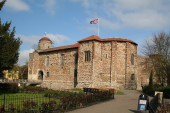 The underrated UK city that was England’s first capital — 1,000 years before London
Tucked away in Essex lies a city that predates London as England's capital by over a millennium. Rich in Roman and medieval history, Colchester only officially became a city in 2022 as part ofRead More...
The underrated UK city that was England’s first capital — 1,000 years before London
Tucked away in Essex lies a city that predates London as England's capital by over a millennium. Rich in Roman and medieval history, Colchester only officially became a city in 2022 as part ofRead More... -
 Universal Studios to open first UK theme park in Bedford by 2031, creating 28,000 jobs
The UK is officially getting its first Universal Studios theme park, with a grand opening set for 2031. The landmark project, backed by the UK government, is expected to bring in a staggeringRead More...
Universal Studios to open first UK theme park in Bedford by 2031, creating 28,000 jobs
The UK is officially getting its first Universal Studios theme park, with a grand opening set for 2031. The landmark project, backed by the UK government, is expected to bring in a staggeringRead More... -
 MI5 lifts the veil on 115 years of secrets in new exhibition
For the first time in its 115-year history, MI5 is pulling back the curtain on its shadowy past. A new exhibition at the National Archives in London, MI5: Official Secrets, offers the public anRead More...
MI5 lifts the veil on 115 years of secrets in new exhibition
For the first time in its 115-year history, MI5 is pulling back the curtain on its shadowy past. A new exhibition at the National Archives in London, MI5: Official Secrets, offers the public anRead More... -
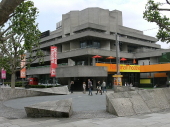 Tourist tax could help revive London’s arts and culture scene
A growing number of voices are calling on the government to allow London to introduce a tourist tax, similar to those already in place in many popular European cities. The Centre for LondonRead More...
Tourist tax could help revive London’s arts and culture scene
A growing number of voices are calling on the government to allow London to introduce a tourist tax, similar to those already in place in many popular European cities. The Centre for LondonRead More... -
 £1bn Chinese ceramics gift to British Museum approved
The Charity Commission has officially approved the largest donation in the British Museum’s history—a collection of Chinese ceramics valued at around £1 billion.Read More...
£1bn Chinese ceramics gift to British Museum approved
The Charity Commission has officially approved the largest donation in the British Museum’s history—a collection of Chinese ceramics valued at around £1 billion.Read More... -
 UK to return Nazi-looted painting to Jewish family
A 17th-century painting stolen by the Nazis in 1940 from a Jewish art collector in Belgium is set to be returned to the collector’s descendants, the British government announced on Saturday,Read More...
UK to return Nazi-looted painting to Jewish family
A 17th-century painting stolen by the Nazis in 1940 from a Jewish art collector in Belgium is set to be returned to the collector’s descendants, the British government announced on Saturday,Read More...

British Queen celebrates
Most Read
- Teen held after US woman killed in London stabbings
- Heave-ho Harry! Prince prepares to join the walking wounded in ice trek to North Pole
- Football: Farhad Moshiri adamant Everton deal above board
- "Master of English Style". Interview with Designer Lydia Dart
- Letter to the Financial Times from Lord Mayor Alderman Michael Bear
World News

‘Green little men’ could use KGB’s caches to seize the territories of East European countries. ‘Green little men’, which, according to some well-known Russian politicians, will arrive in Baltic countires and Eastern Europe to seize administrative buildings and to hold ‘referendums’ using the Soviet army caches created by the agency during the ‘cold war’. This was reported today by the ukrainian news agency Ridnyi Krai (Motherland).
Recently a number of Russian politicians, including GosDuma vice-speaker Vladimir Jirinovskiy, have openly stated that the Kremlin has plans to take over Baltics, Poland and other regions of Eastern Europe.
Apparently the Russians will again use their XXI century know-how– the method of war when unidentifiable Russian speaking armed forces will invade a country yet they will deny any affiliation to the Russian army.
They will hold a referendum, the results of which will be immediately hidden from the public and in a week’s time they will announce the territory to be joining the Russian Federation.
Given the fact that military crossing of the Eastern European border could prove rather difficult, Moscow may activate ‘the Plan B’ using the army caches full of weapons created in the last decades of XX century by soviet agents operating in West and East European countries.
The information about these caches have become public lately following the publication of Mitrohin’s archives in Cambridge last summer.
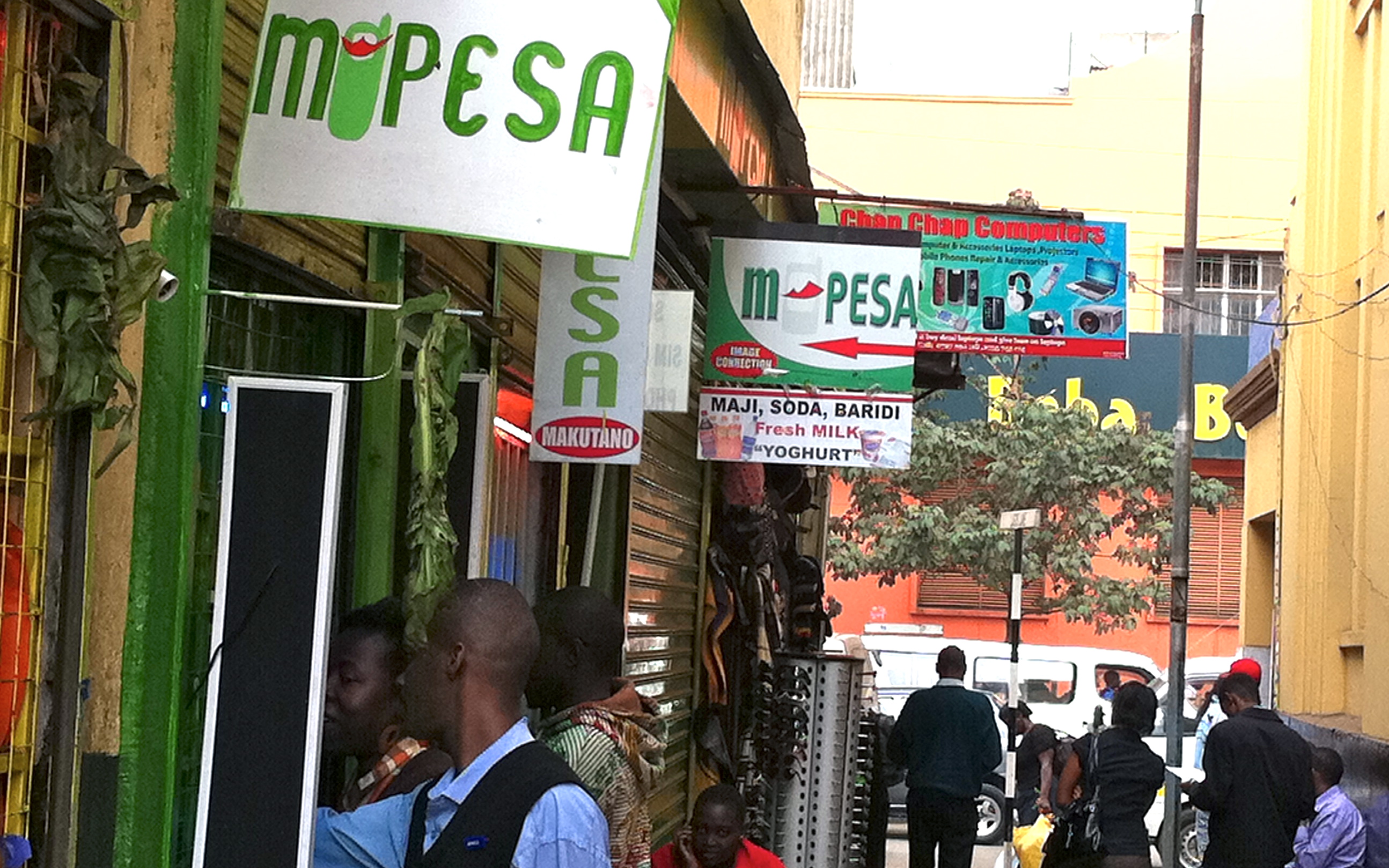
Africans have long used technology developed abroad, but now a Kenyan cash transfer network which bypasses banks is being adopted in Europe.
The M-Pesa mobile money transfer system which allows clients to send cash with their telephones has transformed how business is done in east Africa, and is now spreading to Romania.
"From east Africa to eastern Europe, that's quite phenomenal when you think about it," Michael Joseph, who heads Vodafone's Mobile Money business, told AFP in the Kenyan capital Nairobi.
"I think that this is something the rest of the world can look at, to say that there are ideas that can emanate out of the developing world, and take it to the developed world."
M-Pesa -- or "mobile money" in east Africa's Swahili language -- was introduced in Kenya in 2007 by Safaricom, the country's largest mobile telecommunications company, in partnership with British giant Vodafone.
Since then the service has grown exponentially, with about $40 billion (30 billion euros) flowing through the service in Kenya alone.
In Kenya, the system has become a part of daily life, with more than 18 million customers, and is used by almost two-thirds of the population with more than eight million transactions daily.
The network allows customers to bypass the traditional banking system, using an application available on the simplest of mobile phones to pay utility bills, buy a drink in a bar, or send cash to family and friends.
Romania is the latest nation Vodafone is tapping, with its first European launch last March.
For Michi Carstoiu, an engineer in the capital Bucharest, M-Pesa complements established online payment services.
"Most importantly, I save time - plus I think the transaction fees are smaller," Carstoiu told AFP, shortly after activating his mobile phone account at one of the 1,000 outlets already open.
The number of distribution points is expected to triple by the end of the year.
"Everyone has a mobile phone, and it is very simple to send and receive money or make payments," he added.
Users can charge up their phones by paying in cash at mobile-money agency points, and often at one of the points where they are doing a transaction.
Similarly they can withdraw cash against mobile-money credits at an agency, or when settling a bill, much in the same way as customers in Europe can obtain cash at some supermarkets when using bank cash cards.
Agents are often found in the form of shops or street kiosks.
The outstanding credit can be sent via a special text message to others for a small transaction fee.
African countries using the system include Egypt, Lesotho, Mozambique and Tanzania, and it has also been rolled out in India.
A savings version has been set up as well, allowing those without access to formal banking systems to earn interest on their savings.
The scheme has largely succeeded in Kenya because it meets the needs of millions of people without a bank account who would otherwise operate strictly within a cash economy.
They benefit from a network of M-Pesa agents spread across the country.
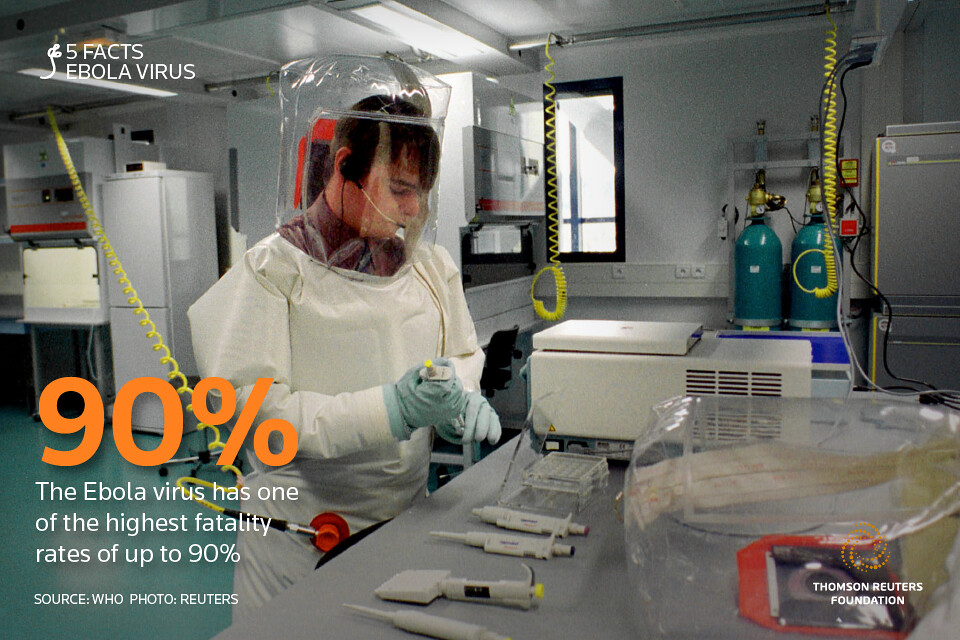
The only sounds in the abandoned Liberian village were the cries of a little girl, shut up with her mother's body inside the family home, starving and thirsty as she waited for death.
Eventually even the girl -- 12-year-old Fatu Sherrif -- fell silent as she too succumbed to the deadly Ebola virus that is ravaging her country and other parts of west Africa.
When AFP visited Fatu's village of Ballajah on Sunday, she had been locked away with her mother's body for a week after most residents fled to the forest to escape an outbreak of the virus.
Belongings lay abandoned around the village, the doors of some homes left open by those rushing to leave.
A few villagers remained, including Momoh Wile, a septuagenarian local chief, who told AFP Fatu's harrowing story.
Ballajah, some 150 kilometres (90 miles) from the Liberian capital Monrovia, is at the heart of one of the quarantine zones established in the country in a desperate bid to try to contain the spread of the disease.
More than 1,000 people in west Africa are now believed to have died from Ebola since the start of the year. In Liberia alone, some 599 cases have been diagnosed, with 323 deaths.

Iraq's Kurdish peshmerga forces are coordinating a counter-offensive against jihadists around the Iraqi city of Mosul with Kurdish fighters from Syria and Turkey, a political leader said on Wednesday.
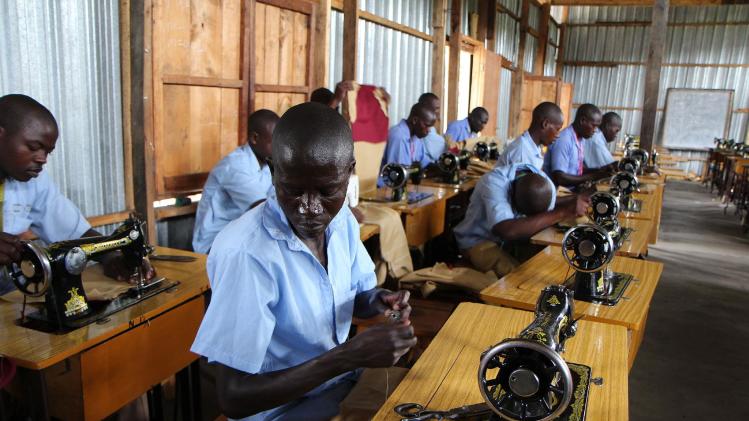
Surrounded by glittering waters, Rwanda's remote Iwawa island appears idyllic, but it has housed thousands of drug users, as well as reputedly those the authoritarian government deems unsuitable for society.
Isaac Mugange was an alcoholic and heavy smoker of cannabis, but the 24-year computer technician was sent to the Iwawa Rehabilitation and Vocational Training Centre, a tiny island in the vast waters of Lake Kivu, to wean himself off drugs.
"A family council decided to send me here to rehabilitation, and I agreed," said the young man, who comes from a wealthy background. His large eyes are still reddened by years of abuse.
The jungle-clad island ringed by beaches could appear at times like a holiday camp.
But it has a darker reputation: on the mainland, Iwawa is spoken of by some as a "Guantanamo" or "Alcatraz", a reference to the infamous US prisons.
Critics say Iwawa, officially set up to help drug addicts, also houses beggars, homeless people, street children and petty criminals -- or anyone who might taint the clean image Rwanda seeks to promote.
Rwanda's tough leaders have sought to rebuild a society left in ruins after the 1994 genocide, pouring energy into creating an orderly nation with smooth roads, efficient administration and tight security -- efforts that critics say can also go too far, suppressing dissent.
Like nearly 2,000 others aged between 18 and 35, Mugange spent a year on the island some 28 kilometres (17 miles) from the mainland of southwestern Rwanda. After six months attending sessions with a psychologist, he is now learning carpentry.
Rwandan authorities insist it is a drug detox and rehabilitation centre, not a detention island or prison.
"This centre is a training school that helps youths, first to get rid of drugs, but also to develop professional skills that can help them earn a living... and become a solution for the government rather than a burden," said Servilien Bizimana, deputy director of the centre.
In a workshop nearby, Mugange and 20 companions cut and sand down wood. Behind a basketball court, dozens of youths sitting under shade trees listen to lessons on hygiene.
Others wait at the health centre to be circumcised, as part of a government program aimed to reduce the risk of AIDS.
The centre's leaders insist all residents are on the island voluntarily.
While the government "reserves the right to help the addicts" by sending them to Iwawa, centre coordinator Nicolas Niyongabo said they are all still free to leave the island if they wish.
But in Rwanda's capital Kigali, one former resident insists that several escape attempts resulted in drowning. The centre's management says two people drowned due to swimming accidents in 2013.
On the island, Olivier, a man in his 30s, admits to being a drug addict and alcoholic.
"I was arrested by police in Kigali. I was drunk and I didn't have my papers," he said, sitting at a sewing machine.
"I want so much to go to Kigali... my wife does not know where I have been for the past five months, because I do not know the phone number."
Centre residents are allowed to make telephone calls and receive visits, but many families are not informed when their relatives are sent to the island, often on simple administrative orders without legal processes.

Daily, long-term doses of aspirin can slash the risk of cancer of the digestive tract, according to research published on Wednesday.
Aspirin greatly reduces the risk of developing and dying from bowel, stomach and oesophageal cancer, its authors said.
They found that taking aspirin for 10 years could cut bowel cancer cases by around 35 percent and deaths by 40 percent.
Rates of oesophageal and stomach cancers were cut by 30 percent and deaths from these cancers by 35-50 percent.
To gain these benefits meant people had to start taking a daily dose of 75-100 mg for at least five years and probably 10 years between the ages of 50 and 65.
No benefit was seen while they took aspirin for the first three years, and death rates were only reduced after five years.
Aspirin has long been considered to be a boost in the fight against cardiovascular disease and has also been investigated for reputed anti-cancer effects.
This is the first to throw up broad evidence that it can be a shield against these types of cancer, the scientists said.
The study, published in the European cancer journal Annals of Oncology, was led by Jack Cuzick, a professor at the the Centre for Cancer Prevention at Queen Mary University of London.
It looked at more than 200 clinical trials and other studies that explored aspirin's anti-cancer effects.
“Our study shows that if everyone aged between 50-65 started taking aspirin daily for at least 10 years, there would be a nine-percent reduction in the number of cancers, strokes and heart attacks overall in men and around seven percent in women," Cuzick said in a press release.
"The total number of deaths from any cause would also be lower, by about four percent over a 20-year period. The benefits of aspirin use would be most visible in the reduction in deaths due to cancer."

Iraq's Kurdish peshmerga forces are coordinating a counter-offensive against jihadists around the Iraqi city of Mosul with Kurdish fighters from Syria and Turkey, a political leader said on Wednesday.
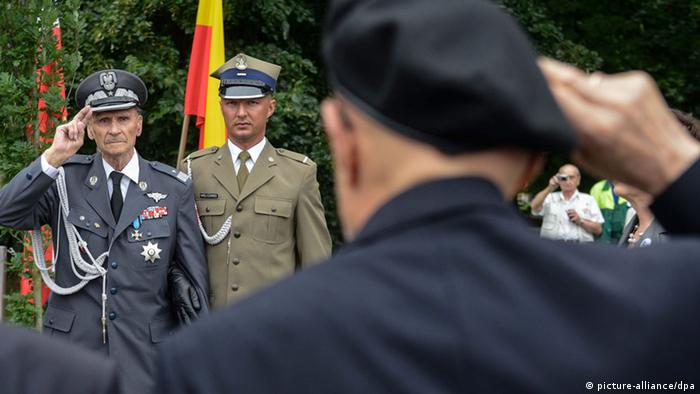
Poland's capital ground to a halt on Friday and television and radio stations fell silent nationwide for 70 seconds as air-raid sirens wailed to mark seven decades since Polish insurgents launched the doomed Warsaw Uprising against the Nazis.
Traffic halted and pedestrians stood in silent homage at 1500 GMT in memory of the nearly 200,000 mostly civilian victims of the 63-day insurrection launched on August 1, 1944 in a doomed bid to secure Poland's post war independence.
"The uprising broke out because there was no other way to avenge the humiliation, the camps, all the tragedy that was inflicted on Poland," veteran Bogdan Horoszowski told AFP at a wreath-laying ceremony at Warsaw's Tomb of the Unknown Soldier.
"We pay homage to the insurgents, knowing that the Warsaw Uprising paved the way to our peaceful transition to freedom 25 years ago," Warsaw mayor Hanna Gronkiewicz-Waltz said at the ceremony, referring to Poland's negotiated end to communism in 1989.
The uprising by Polish Home Army (AK) partisans is sometimes confused with the 1943 Warsaw Ghetto Uprising in which Jewish partisans imprisoned by the Nazis in an area of the Polish capital launched their own doomed insurgency.
In 1944, around 50,000 AK partisans, mostly young men and women in their late teens and early twenties, scouts and even children, took up arms against the Nazi Germans occupying the capital, as the Soviet Red Army was poised to invade it from the east.
Vastly better equipped, the Nazis slaughtered insurgents and civilians, many in aerial bombardments.
Sixty-three days of savage battles turned the capital into a smouldering heap of rubble.
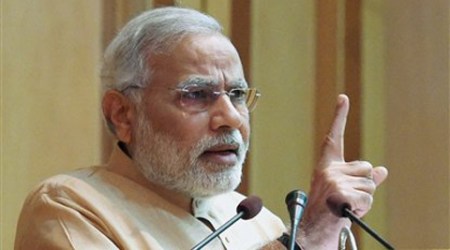
US Secretary of State John Kerry told Narendra Modi that India's stance on a key WTO trade deal sent the wrong message, as he met the country's new prime minister for the first time on Friday.
Kerry has expressed optimism about expanding cooperation between the world's two largest democracies during a first visit aimed at reviving a relationship clouded by mistrust.
But a raft of disputes has cast a shadow over hopes for a warmer relationship, with India on Thursday blocking a major World Trade Organization pact on customs procedures.
During the meeting -- aimed at breaking the ice with a leader once shunned by Washington -- Kerry told Modi India's stance on the deal was at odds with his desire to open up the country's economy.
"We note that the prime minister is very focused on his signal of open to business and creating opportunities and therefore the failure of implementing TFA (Trade Facilitation Agreement) sends a confusing signal and undermines that very message that he is seeking to send about India," a US official quoted Kerry as saying.
"While we understand India's food security concerns, the trade facilitation agreement is one that will bring tremendous benefit, particularly to the world's poor. India's actions therefore are not in keeping with the prime minister's vision."
Kerry urged India to work with the United States to move the WTO process forward, the official said.
Speaking on condition of anonymity, the official also said Modi told Kerry that while areas of difference would always exist, "what is critical is what we do to enhance and build on our trust".
Earlier, Kerry said the United States wanted to "try to really take the relationship to a new place", following a series of diplomatic spats with India.
Washington has little relationship with Modi, a Hindu nationalist who was refused a US visa in 2005 over allegations that he turned a blind eye to anti-Muslim riots as leader of the western state of Gujarat.
The United States caught up with other Western nations during the election campaign, sending its ambassador to meet Modi who since taking office has shown no visible signs of holding a grudge over his past treatment.
But US officials, who value frank and free-wheeling relationships with foreign leaders, are unsure what to expect from Modi who is known for his austere, solitary lifestyle and is not believed to be at ease in English.
Modi, who as a young man wandered the Himalayas, is seen as a very different character than his predecessor Manmohan Singh, a bookish Oxford-educated economist with whom President Barack Obama had found a kinship.

Two rare Sri Lankan leopard cubs have been born in a zoo in northern France, a boost for a sub-species that numbers only about 700 in the wild, the head of the facility said Tuesday.
"There are only a few of them in captivity with about 60 spread across some 20 European zoos," said Jimmy Ebel, of Maubeuge Zoo. "These leopards are under great threat due to deforestation and poaching."



















